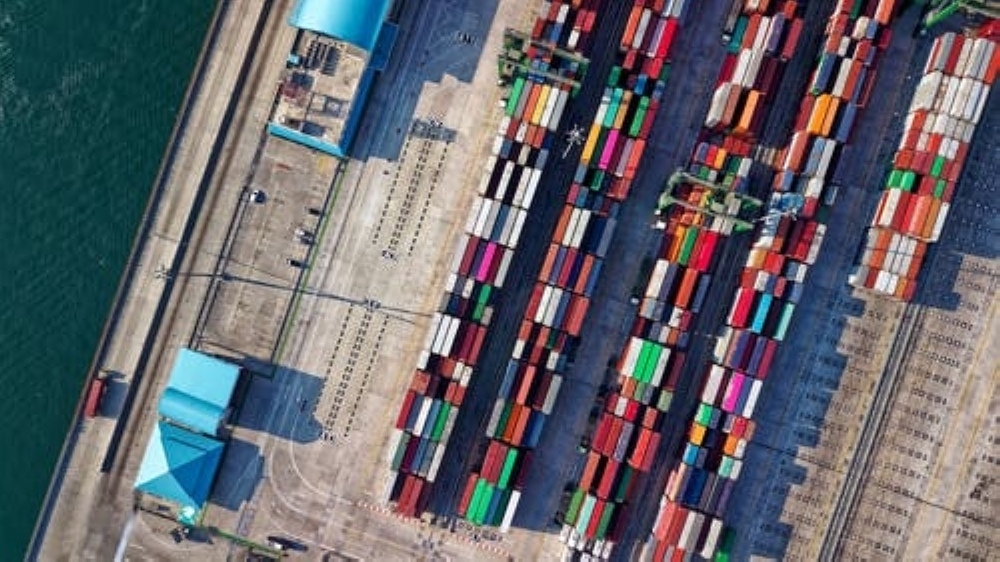

BUSINESS REPORTER
MUSCAT, APRIL 26
Governments can catch-up if they want to lead in global trade logistics by following a strategic four-point plan
GCC countries can become titans of the global logistics industry by creating a digital-first mindset, helping the region move from digital technology adopters on the global stage to disrupters, according to the latest report by Strategy& Middle East, part of the PwC network.
The report, entitled ‘Modernising Gulf Logistics Through Digitisation’, states that the development of an efficient and capable logistics sector is vital for the economic diversification agenda of GCC governments.
It adds that countries in the region have fallen behind their global peers because of three major factors: the lack of modern and integrated infrastructure, insufficient service quality, and legacy processes.
Alessandro Borgogna, partner with Strategy& Middle East, said: “GCC countries are at a turning point. To make real efforts to transform their economies and to enable growth and competitiveness, the GCC will need first to create a digitised and efficient logistics system, supported by a transparent and innovative regulatory.”
Despite the recent slowdown caused by the Covid-19 pandemic, the global transport and logistics sector market is set to grow robustly from around $8 trillion in 2020 to around $12.8 trillion in 2025.
“The logistics sector is critical to local, regional, and global economies, as it supports supply chains and facilitates international trade flows. It is essential to businesses and individuals in all industries,” said Haroon Sheikh, a partner with Strategy& Middle East.
GCC governments are engaged in ambitious plans to change the economic base, move toward sustainability, and capitalise on the region’s strategic location as a hub for international trade, and are seeking to increase localisation in such areas as pharmaceuticals, aluminium and consumer goods. These goals are attainable only if the logistics sector undertakes concerted modernisation and digitisation efforts.
According to the report, the region needs to do more than catch-up if it wants to lead in global trade logistics. This can be done by:
1) Giving digitisation an integral role in policy
For a “digital-first” approach in logistics, GCC governments need to integrate digitisation with policymaking. Some other governments have adopted data-driven policymaking by developing a “single source of truth”, which integrates data and process points by funnelling them into one system. With enough trade data, GCC countries could identify new business opportunities, such as by detecting logistics flows that currently bypass them and that would typically flow through emerging logistics hubs. GCC countries could also take proactive measures to identify and mitigate any supply chain and trade dependencies on particular economies or regions.
2) Use digitisation to replace legacy processes
GCC governments need to digitise and automate processes throughout the logistics sector to increase efficiency. Best-in-class ports and customs authorities elsewhere have used digital capabilities to offer end-to-end online services.
3) Streamline logistics with digitisation within enabling ecosystems
GCC governments need to learn from other countries, which are streamlining logistics with digitisation. New entrants are introducing innovative, fully digitised, and sometimes disruptive business models. Incumbents are also innovating and overhauling existing models by automating facilities (such as the Deutsche Post DHL Group, which has introduced the Internet of Things [IOT], the network of connected devices, into its warehouses through smart devices as well as automated processes such as sorting), using blockchain, or experimenting with new technologies through incubators and research and development labs. GCC countries should mobilise innovation rapidly across the value chain by establishing and increasing support for logistics startups. Governments must provide access to capital, establish incubators with the private sector, and invest strategically in research and development.
4) Enable digitisation for gateway ports
There is also a need for gateway port authorities and operators to digitise processes to reduce inefficiencies, improve transparency, lower logistics costs, and enhance their global competitiveness
Oman Observer is now on the WhatsApp channel. Click here


